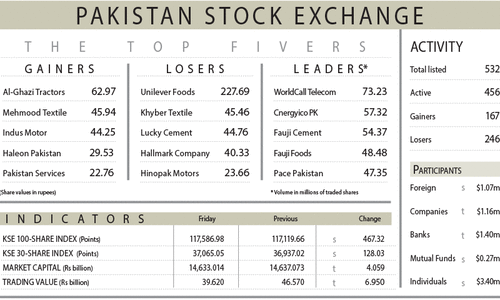 The world financial sector is in serious trouble. As a result, the world economy in general and that of the rich world in particular is being threatened with recession. The sub-prime market crisis had hit the rich world’s banks and other financial, institutions very badly in August 2007. And by November this crisis had brought the overall investment rate in developed economies to almost standstill as the investment dollar went scurrying for cover.
The world financial sector is in serious trouble. As a result, the world economy in general and that of the rich world in particular is being threatened with recession. The sub-prime market crisis had hit the rich world’s banks and other financial, institutions very badly in August 2007. And by November this crisis had brought the overall investment rate in developed economies to almost standstill as the investment dollar went scurrying for cover.
When the initial attempts to ease the credit situation by the individual central banks and the US federal reserve through interest rate cuts failed to do the needful, all of them got together in early December and pumped in billions into the financial sector to augment the liquidity position of the banks. But this too seems to have failed to yield the desired results.
And now the panicky managers of the rich world’s economies seem all set to hit the much maligned and much violated ( b y the rich world itself) Washington Consensus for a six in what appears to be a blind gamble.
Britain is now talking about nationalising a private mortgage bank (Northern Bank); most rich countries are already violating the principle of farm subsidies; many are accused of indulging in trade protectionism. Central banks of most OECD countries are intervening to save their private banks going the Northern Rock way: they are also contemplating introducing stricter regulations to restrict their private financial institutions from taking liberties with the money of their depositors while at the same time the central banks rather than the markets are determining the interest rates to save their economies from slowing down.
Meanwhile, the latest Economic Outlook report on OECD countries while acknowledging that several shock waves had hit the economies of member countries, which included the financial turmoil, cooling housing markets, and higher prices of energy and other commodities has advised the OECD’s economic managers not to hit the panic button and go for intervention and protection to prethe oncoming recession for short-term gains but to let the market continue to do the job in the interest of long term prospects.
The baseline scenario depicted in the report is actually not that bad in view of the recent shocks. It represents the outcome that carries the highest probability in the current more uncertain situation.
 However, the report said, continued anchoring of inflation expectations cannot be taken for granted. Indeed, margins of slack throughout much of the OECD have shrunk and are now small or non even if their exact size is admittedly uncertain. Moreover, OECD economies are being hit by cost shocks: raw material prices have soared and, partly in connection therewith, the disinflationary effects of manufactured imports from China are fading. The report further said that if signs were to emerge that inflation expectations are drifting up, it might be necessary to pay a price in terms of lower activity in the short- term to preserve this vital policy asset.
However, the report said, continued anchoring of inflation expectations cannot be taken for granted. Indeed, margins of slack throughout much of the OECD have shrunk and are now small or non even if their exact size is admittedly uncertain. Moreover, OECD economies are being hit by cost shocks: raw material prices have soared and, partly in connection therewith, the disinflationary effects of manufactured imports from China are fading. The report further said that if signs were to emerge that inflation expectations are drifting up, it might be necessary to pay a price in terms of lower activity in the short- term to preserve this vital policy asset.
According to the report the financial model based on origination, securitisation and distribution has allowed credit to flow to agents who might not otherwise have found it and risk to be allocated to those willing to hold it.
However, it said the model also has some deficiencies that have come into the open with the collapse of the submarket in the United States. One such deficiency is the lack of information as to where in the system various risks are concentrated. Moreover, the repricing of assets and recognition of losses now that the assessment of risk has changed is proving slow. The combination of uncertainty as to who holds risk and slow recognition of losses has caused liquidity to dry up in some markets.
As long as the process of reand loss discovery continues, financial markets the report said are likely to remain a source of uncertainty and of vulnerability to shocks. Hence, action to speed up the necessary repricing and recognition of losses would be useful.
At the same time, regulators and supervisors will need to balance the desire for a rapid restoration of confidence in balance sheets of financial institutions against the risk of triggering a severe retrenchment in credit supply. In due course, the lessons will have to be drawn as to whether and how the regulatory framework around the model needs to change to prevent its malfunctioning in the future.
Countries have been, and will be, hit differently by financial turmoil and housingweakness. In such circumstances, the natural response of market economies includes a reof currencies. As long as such movements do not become a source of instability, they tend to facilitate the necessary adjustment process by redirecting demand to where it has fallen. Recent dollar depreciation is a case in point.
The projections rest on the assumption of unchanged exchange rates but were downside risks to manifest themselves to different degrees across countries; this could well be accompanied by exchange rate adjustment. This could lead to concern for activity in countries facing appreciation and for inflation in countries witnessing depreciation.
However, the report advised such pressures should not be an excuse for interventionist policies since they can usually be compensated to large extent through monetary policy. In the current circumstances, a striking feature as regards exchange rates is the so far limited appreciation of the Chinese currency (renminbi). Given symptoms of overheating and high domestic inflation, faster appreciation would seem to be in China’s own interest. It would also allow less emphasis to be put on direct intervention and regulatory instruments to contain inflation, with beneficial effects for the economy going forward. At the same time, it would help shift demand towards other countries where downside risks are currently larger.
Timely and orderly exchange rate adjustments may also help alleviate protectionist pressures in OECD countries. These are a risk not just for trade but also for investment. Given the size of projected current account imbalances, a number of countries not least oil producers will be recycling large export earnings and will aim to boost the return on recycled funds by investing through Sovereign Wealth Funds or similar vehicles. Protectionist noises, whether in the trade or investment area, are not helpful for business confidence, especially at a time of significant downward risk. The best response would be progress in a multilateral setting as regards trade in the Doha Round and as regards investment in a number of fora, including the OECD.












































Dear visitor, the comments section is undergoing an overhaul and will return soon.